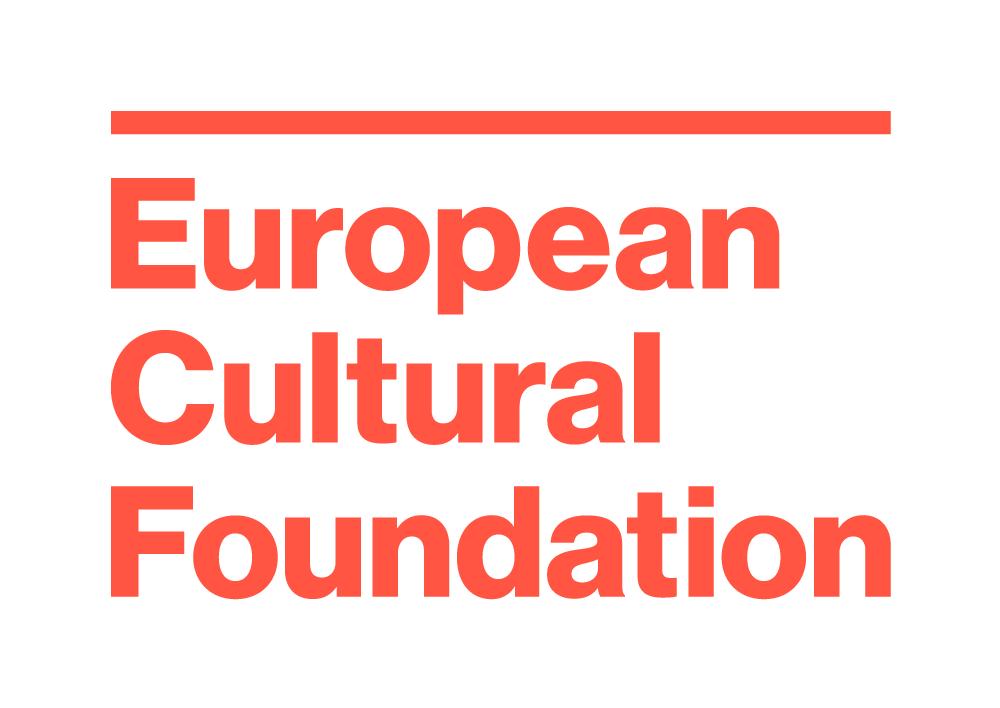Breaking out of the echo chamber
A broadcasting service for Europe?
Is the goal of a European public sphere best served by the creation of a supranational public service broadcaster, as has recently been proposed? Roman Léandre Schmidt and Carl Henrik Fredriksson are sceptical: rather than creating an artificial flagship, the EU must provide incentives for existing outlets to Europeanize their operations.
In an article in Spiegel Online, Andre Wilkens and Jakob von Weizsäcker call for a publicly financed media channel that is produced in and for Europe.1 It is their hope that the project will make an important contribution to European democracy. Wilkens and von Weizsäcker rightly argue that we are trapped in ‘national filter bubbles’: European problems are not actually dealt with at a European level but always handled from a national perspective, in connection with special interests. This results in an ‘anti-enlightenment echo chamber’ that right-wing populists use to their own advantage and that is further reinforced by digitalization and the effects of filters.
Furthermore, quality journalism lacks the financial resources to counter these developments, as well as coming under additional political pressure in European countries such as Poland and Hungary. Yet more lapses in communication accumulate, so that they take on ‘systemic relevance and threaten democracy’.
All of this is true. The challenge nowadays, as Wilkens and von Weizsäcker write, is indeed ‘to develop a forward-looking model for digital media that fits Europe’. After all: ‘Democracy can only flourish in the long term if accompanied and monitored by a European public sphere.’ But what does this ‘European public sphere’ consist in and what exactly would a media model that ‘fits Europe’ look like?
For Wilkens and von Weizsäcker, the answer lies in a ‘European broadcasting service’. They see the founding of such an organization as a statement of intent ‘to create a digital European Airbus for the European public sphere’. This bold analogy is, with all due respect, thoroughly flawed. First, it assumes that European publics could be fully integrated through a gold standard communications project that is at once symbolic and supranational, and that there is a need for such a project; second, it assumes that there is something specifically European about Airbus as a model, something which ‘fits Europe’ and which Boeing, for example, could not offer.
All that remains is for the whole enterprise to be translated into twenty-four official languages. The European broadcasting service is supposed to take up the challenge of linguistic diversity ‘proactively and thus profit from dynamic developments in digital translation technologies’. The result: a broadcaster ‘in twenty-four languages that is digital and analogue, short and long, serious and humorous, but always of the best quality’.
Really? Even with the best intentions and an A380-Budget, the ‘European public sphere’ has little to gain from going down this path. A glance at the history of such projects proves this. There have been numerous attempts to found media operations that ignore or – for whatever well-intentioned reasons – exclude the specific history of European nation-states, each with their own historical experience and process of forming their own tastes. However, all such attempts to jump-start a unified communicative space for Europe have failed miserably.
Consider ‘Europe’s first national newspaper’, as The European (1990-1998) called itself, the English-language weekly launched by the British publisher Robert Maxwell, or the ‘transnational low budget journalism’ (Marcel Machill) of the multilingual TV broadcaster Euronews. Either such media produce superficial ‘eurotalk’, because they have to resort to the lowest common denominator as regards linguistic figures, political knowledge, collective experience and well-known actors. Or they reproduce national folklore in twenty-four languages. Both variants fail the public – and how could it be otherwise? One does not create transnational spaces of communication by rolling out European media across the continent like decorative garlands and then hoping someone will take pleasure in the result.
Wilkens and von Weizsäcker propose a European broadcasting service as the ‘backbone of a European public sphere’. They seem to understand ‘the public sphere’ (in the singular) just as Jürgen Habermas did when he traced its emergence as a category of bourgeois society in Europe’s nation-states of the eighteenth and nineteenth centuries. This is however problematic in two respects: for one, the communicative practices of the European Republic of Letters were gradually superseded by nation-state centred mass communication in a process that took two centuries to run its course. To complete the process in revised form under the aegis of a European super medium within two years (by the 2019 European elections) may well prove an all too Promethean project.
Second, in terms of content, the question arises whether historical processes of nation-building are comparable with creating a European public sphere today, as Wilkens and von Weizsäcker seem to assume. Habermas himself has in any event emphatically distanced himself from such an analogy when it comes to contemporary challenges facing Europe: ‘A European public sphere must not be imagined as the projected enlargement of a […] domestic public sphere. It will only emerge from the mutual opening of existing national communicative networks to one another.’ Habermas describes quite precisely how this is to happen: ‘national media must cover and comment upon the substance of controversies in the other [EU] member countries. Then parallel views and counterviews can develop in every country, based on the same sorts of subjects, information and grounds, regardless of where these originate.’ The result would be the ‘collective formation of opinions and political will across borders’.2
If one follows these far more promising steps, one can rely on further interconnections, overlaps and osmotic processes among European media and publics. Such developments will continue to play out on the basis of existing communicative structures and actors, with both operating largely in the nation-state context. In fact, the prerequisites for all of this are already present: crucially, there are (still) media outlets that do superb work. It is with these outlets that one has to work in order to further Europeanize the media landscape.
However, it is true that the instruments used so far and the pace at which things have moved in previous years are far from sufficient if this goal is to be achieved in the foreseeable future. Also true is that, in some countries in Europe, it is less the failure to Europeanize the respective media landscape that presents the problem so much as the absence of independent actors in the first place. This applies not only to authoritarian states like Poland and Hungary but also to parts of southeastern Europe.
Can both problems be dealt with using one and the same initiative? Wilkens and von Weizsäcker obviously believe so: they claim their European broadcasting service would promote the Europeanization of a media-based space of communication – in other words, create a European public sphere – at the same time as intervening in authoritarian settings. Here too though, scepticism is called for. The risk is that a European broadcasting service that simultaneously seeks to be a ‘Radio Free Europe 2.0’ would only further reinforce the perception of the EU as benign dictator and therefore ultimately do the ‘European public sphere’ a disservice.
So what is to be done? Acting in a specifically European way, especially in the media sector, means observing the principle of subsidiarity. In the worst-case, establishing a super-medium over and above existing infrastructure may well endanger that very infrastructure. Instead, European institutions should agree by 2019 on an intelligent support system that provides strong incentives for existing media outlets, which are already valued by their respective publics, to Europeanize their operations. It is also precisely in those countries where independent work is only possible in the face of huge difficulties that there is no option other than to support local initiatives and facilitate their involvement in European networks.
There has to be an independent authority to take decisions on supporting transnational media co-operations. The procedure must be transparent but also uncomplicated and swift. Specific terms and conditions must be exhaustively discussed. One crucial condition for success cannot be repeated often enough: the European Union has to overcome its fear of independent European journalism.
To date, European media policy takes place exclusively through a system of calls for tender, to which media actors must respond. Successful applicants are then put at the mercy of the Directorate-General – however enlightened this particular branch of Europe’s administrative apparatus may be. A model of support that is more robustly protected from political influence would be far more preferable.
Such a structure could accommodate many of Wilkens and von Weizsäcker’s sensible suggestions about financing and dissemination: ‘European core funding’ that incorporated duties paid by Internet corporations, for example, would be conceivable. A must-carry requirement for certain promoted formats on large digital platforms is well worth considering. As with the idea of the ‘European broadcasting service’, the decentralized approach that we sketch here presents a huge challenge, in terms of Europeanizing quality media that are already well established among European publics. The prospects of it succeeding are uncertain, but at least it is not pre-programmed to fail.
Andre Wilkens and Jakob von Weizsäcker, ‘Hier spricht Europa’, www.spiegel.de, 10 December 2016, www.spiegel.de/politik/ausland/europafunk-gegen-die-propaganda-flut-essay-a-1123991.html.
Jürgen Habermas, ‘Warum braucht Europa eine Verfassung?’, Die Zeit 27/2001, 7. Cf. ibid., ‘Why Europe needs a constitution’, New Left Review 11/2001, https://newleftreview.org/II/11/jurgen-habermas-why-europe-needs-a-constitution
Published 7 April 2017
Original in German
Translated by
Ben Tendler
First published by Blätter für deutsche und internationale Politik 4/2017 (German version); Eurozine (English version)
Contributed by Blätter für deutsche und internationale Politik © Carl Henrik Fredriksson; Roman Léandre Schmidt; Blätter für deutsche und internationale Politik; Eurozine
PDF/PRINTPublished in
In collaboration with
In focal points
Newsletter
Subscribe to know what’s worth thinking about.
Related Articles

Rethinking Europe
A discussion between Jürgen Habermas, Sigmar Gabriel and Emmanuel Macron
Emmanuel Macron has broken from entrenched definitions of right and left in France and based a programme on liberalization and social justice. Sigmar Gabriel, the German Social Democrat foreign minister, has also sought to bring together the conflicting wings of his party. Here, the two discuss the need for positive campaigning on Europe, and why the future of the Union depends on a combination of investment and reform. With an introduction by Jürgen Habermas.

Despite Lithuania’s Europeanism, its policies on LGBTQ rights are sometimes closer to Russia’s. At the end of 2023, the Lithuanian parliament voted against amending the country’s notorious ‘gay propaganda’ law, in defiance of the European Court of Human Rights.






